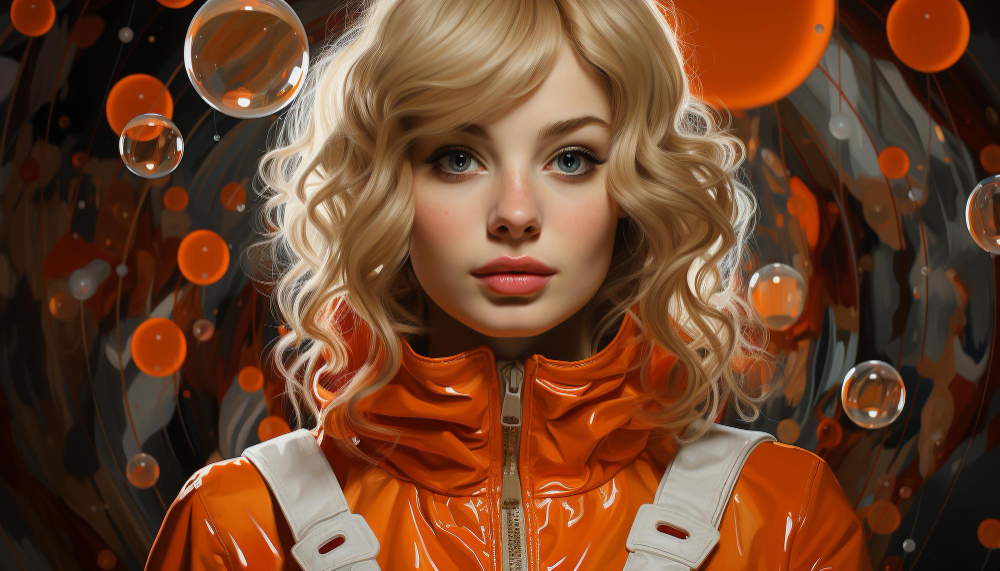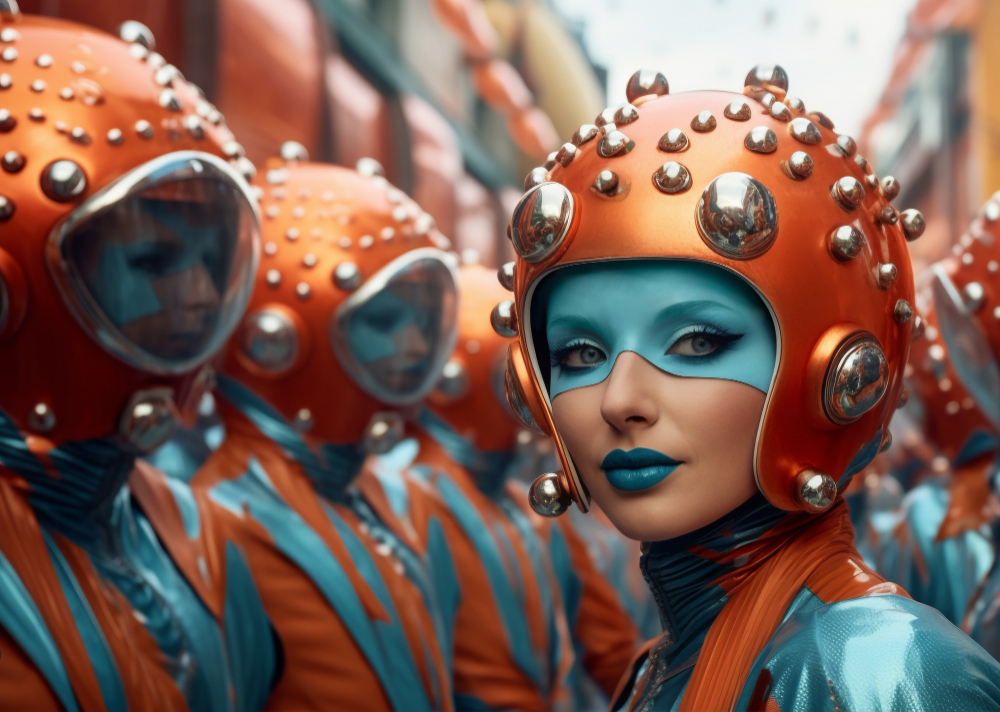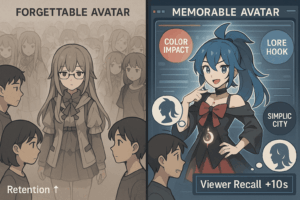Introduction
Are you tired of spending endless hours creating 3D models for your game, only to find that they lack the realism and detail you envisioned? It’s time to level up your game design with AI Generated 3D Models. Imagine a world where characters, environments, and assets are crafted not just by human hands, but also by intelligent algorithms. In this blog, we’ll explore the potential of AI Generated 3D Models in revolutionizing the way 3D models are created for games. Transitioning from understanding the basics of AI-generated models, we’ll delve into exploring their benefits and advantages for game development. Moreover, through this exploration, we’ll uncover the transformative power of this cutting-edge technology.
Understanding AI Generated 3D Models
AI Generated 3D models represent a revolutionary approach to creating digital assets for games. Unlike traditional methods, AI-generated models are crafted using sophisticated algorithms trained on vast datasets of existing 3D assets. This allows for more efficient and precise model creation. These algorithms learn to understand the nuances of shape, texture, and structure, enabling them to generate new models autonomously. Furthermore, this process accelerates the production pipeline. Subsequently, it allows for the creation of highly detailed assets that may have been impractical or time-consuming to produce manually.
Advantages of using AI Generated 3D Models in Game Development.
The advantages of using AI-generated models in game development are manifold.
- Firstly, they offer unparalleled speed and efficiency, enabling developers to generate large volumes of assets quickly. This allows for faster production compared to traditional methods. This means faster iteration cycles, reduced production costs, and ultimately, shorter time-to-market for games.
- Additionally, AI-generated models boast impressive scalability. It makes them suitable for games of all sizes and platforms, from mobile to console to PC. Whether it’s low-poly background objects or high-poly character models, AI adapts to each project’s needs. This ensures optimal performance and visual fidelity.
10 Ways AI Generated 3D Models Transform Game Development
In the realm of game development, the integration of AI-generated 3D models opens up a world of possibilities. Here are ten innovative ways these models are revolutionizing the industry:
1: Streamline Character Design and Animation Processes
Gone are the days of painstakingly sculpting and animating characters from scratch. With AI-generated 3D models, developers can streamline the character creation process, saving valuable time and resources for 3D games. By harnessing the power of AI algorithms, developers can produce high-quality 3D character designs and animations efficiently, without compromising on creativity or fidelity.
2: Character Emotion Modeling
Imagine characters whose facial expressions and body language are dynamically generated by AI, reflecting their emotions and reactions to in-game events. The realism deepens player immersion, enhancing storytelling. Additionally, it creates more nuanced and believable interactions between characters, enhancing the overall storytelling experience.
3: Dynamic Adaptive Environments
AI-generated 3D models have the remarkable ability to adapt in real-time based on player actions and choices. With this capability, game environments can evolve and respond dynamically to each player’s unique playthrough. Consequently, it creates a more personalized and engaging gaming experience. From changing weather patterns to dynamic terrain alterations, the possibilities are endless.
4: Procedural Storytelling Assets
With AI-generated 3D models, developers can dynamically generate narrative-driven assets tailored to each player’s choices and progress within the game. This allows for more dynamic and immersive storytelling experiences, where players feel truly immersed in the game world. From unique characters to interactive items and environments, AI-generated assets enhance the depth and richness of the game narrative.

5: Improve Scalability and Flexibility in Game Design
By integrating AI-generated 3D models into game design, scalability and flexibility improve. On the contrary, developers can easily scale up content production and adapt to evolving trends. Whether it’s adding new characters, environments, or gameplay mechanics, AI-generated models allow for rapid iteration and expansion, ensuring that games stay fresh and engaging over time.
6: Incorporate AI-Generated Assets for Diverse and Inclusive Representation
AI models empower developers to create diverse game content representing range of backgrounds, and identities. By harnessing AI algorithms, developers can ensure their games reflect real-world diversity. In addition, this fosters inclusivity within the gaming community.
7: Enhance Immersion Through Lifelike Textures and Details
AI-generated textures and details enhance realism and depth in game environments, elevating immersion levels. Moreover, players feel more engaged. Transitioning from realistic lighting effects to intricate surface details, AI-generated assets enhance player immersion. Consequently, they draw players deeper into the game world, enhancing their overall gaming experience.
8: Automate Repetitive Tasks to Save Time and Resources
By automating repetitive tasks using AI-generated 3D models, developers can save time and resources. This enhances efficiency and productivity. By allowing developers to focus on creativity and strategy, they deliver higher quality games in less time. Consequently, development processes become more efficient.
9: Experiment with Innovative Gameplay Mechanics and Concepts
AI-generated 3D models enable developers to experiment with innovative gameplay mechanics and concepts that were previously unattainable. From dynamic environment manipulation to adaptive enemy behavior, AI-generated models open up new possibilities for gameplay innovation, allowing developers to create truly unique and memorable gaming experiences.
10: Behavioral Animation Synthesis
By combining AI-generated 3D models with behavioral animation synthesis techniques, developers create lifelike NPC behaviors. This enhances immersion and realism in game worlds. From lifelike facial expressions to realistic movement patterns, AI-generated models bring game characters to life in ways that were once thought impossible.
Benefits of AI Generated 3D Models for Games
Improved Visual Quality:
AI-generated 3D models significantly enhance the visual quality of games by creating highly detailed and realistic assets. These models contribute to immersive gaming environments, captivating players with lifelike characters, intricate landscapes, and dynamic props. The result is a visually stunning experience that elevates the overall aesthetic appeal of the game.
Efficiency in Development:
AI-generated models streamline the game development process, saving time and resources for developers. By automating asset creation, developers can accelerate production cycles and reduce costs. Additionally, this allows them to focus on other aspects of game design. This efficiency enables studios to deliver high-quality games to market faster, meeting the demands of players and industry trends.
Scalability and Adaptability:
AI-generated models offer scalability and adaptability, making them suitable for games of all sizes and platforms. Whether it’s a small indie game or a large-scale AAA title, AI-generated models can be tailored to meet the specific requirements of each project. This flexibility ensures optimal performance and visual fidelity across different gaming experiences.
Enhanced Player Engagement:
AI-generated models contribute to enhanced player engagement by creating more dynamic and interactive game worlds. From procedurally generated environments to dynamically animated characters, these models add depth and complexity to games. They keep players immersed and entertained. The result is a more engaging gaming experience that encourages player retention and loyalty.
Innovation and Creativity:
AI-generated models enable developers to explore new gameplay mechanics and concepts that were previously unattainable. By pushing the boundaries of game design, developers can innovate with unique features that surprise and delight players. However, this creativity leads to groundbreaking games. Moreover, this creativity results in groundbreaking games. These games push the industry forward and inspire future developers.
How the AI Generated 3D Models contribute to improved visuals, performance, and player engagement?
In addition to enhancing visuals, AI Generated 3D models also contribute to improved performance and player engagement. By optimizing asset creation processes and reducing file sizes, AI-generated models minimize resource overhead. Moreover, they maximize the efficiency of game engines. As a result, gameplay experiences become smoother, with faster loading times and higher frame rates. Consequently, players can enjoy games without technical hiccups or interruptions. Moreover, AI Generated assets can enhance player engagement by offering more dynamic and interactive game worlds.
From procedurally generated environments to dynamically animated characters, these models enable developers to create engaging experiences. These experiences keep players returning for more. Whether players explore vast open worlds or engage in epic battles, AI-generated models enhance game depth and complexity. This makes games more enjoyable and immersive for players of all ages and skill levels.

Future Trends and Developments of AI Generated 3D Models
As we look ahead, the future of AI Generated 3D models in game design is brimming with exciting possibilities. With ongoing advancements in AI technology, we can expect increasingly realistic and intricate models. These advancements are driven by sophisticated algorithms. These advancements will not only streamline the development process but also push the boundaries of creativity. As a result, developers can create once unimaginable worlds.
Furthermore, the integration of AI-generated assets in VR and AR gaming is poised to revolutionize how we experience games. This advancement will reshape our gaming experiences. Imagine stepping into a virtual world where AI algorithms meticulously craft every detail, blurring the lines between reality and fiction. With AI-generated models, VR and AR experiences will become more immersive and lifelike. As a result, players will enjoy unprecedented levels of immersion and interaction.
Conclusion
In conclusion, AI-generated 3D models revolutionize the future of game design by streamlining development processes and enhancing player immersion. They reshape how games are created and experienced. With AI, developers can unlock new creative horizons and deliver unforgettable gaming experiences to players around the world.
As we move forward, it’s essential for developers to embrace the opportunities that AI Generated Assets offer. AI-generated models have the potential to elevate every aspect of game design. They can create lifelike characters, environments, and immersive VR experiences. Platforms like 3DAiLY are leading the charge, connecting artists with the gaming industry. Furthermore, by creating production-ready characters, AI and world-class artists collaborate, thus making the future of game development brighter than ever. This collaboration ensures that game development reaches new heights of innovation and quality. So let’s embrace the power of AI Generated 3D models and create the next generation of gaming masterpieces together.



